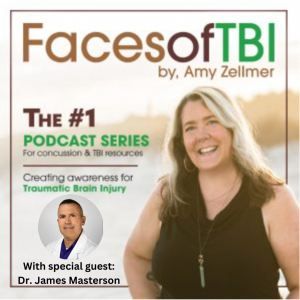 Today, I have the privilege of talking to Dr. James Masterson, the Director of Sports Medicine and the Concussion Center at Excela Health in Greenberg, Pennsylvania. He’s been deeply involved in concussion management for over 20 years, particularly focusing on sports-related concussions. However, his interest has expanded to include adults dealing with persistent post-concussive symptoms, a group that often faces misunderstandings and a lack of appropriate medical evaluation. Dr. Masterson and his team, comprising athletic trainers, therapists, chiropractors, yoga meditation instructors, and more, collaborate to enhance outcomes and well-being for these individuals.
Today, I have the privilege of talking to Dr. James Masterson, the Director of Sports Medicine and the Concussion Center at Excela Health in Greenberg, Pennsylvania. He’s been deeply involved in concussion management for over 20 years, particularly focusing on sports-related concussions. However, his interest has expanded to include adults dealing with persistent post-concussive symptoms, a group that often faces misunderstandings and a lack of appropriate medical evaluation. Dr. Masterson and his team, comprising athletic trainers, therapists, chiropractors, yoga meditation instructors, and more, collaborate to enhance outcomes and well-being for these individuals.
Understanding Concussion and Persistent Symptoms:
Dr. Masterson eloquently breaks down the mechanics of a concussion. He explains that a concussion involves mechanical, neuro-inflammatory, and chemical changes within the brain. These changes require the brain to utilize its energy, making rest and recovery crucial in the early stages. However, he emphasizes that there’s a difference between appropriate rest and complete inactivity. Thanks to advancements in research, we now know that early activation and exertion can significantly benefit recovery.
The Importance of Finding the Right Help:
One of the challenges individuals face is finding the right healthcare provider who truly understands their condition. Many general practitioners and even neurologists might not have adequate knowledge about concussions, leading to misdiagnoses or dismissive attitudes. Dr. Masterson stresses the importance of finding a provider who listens and is dedicated to finding solutions tailored to each individual. He highlights the importance of not giving up and seeking the right treatment until you regain a high quality of life.
Help for Children and Young Adults:
Dr. Masterson also sheds light on the potential impact of concussions on children and adolescents. He discusses how head injuries during a crucial period of brain development can result in long-lasting effects, such as learning difficulties or emotional changes. He suggests that schools implement periodic checks to assess cognitive health and mental well-being in students, especially those who have experienced concussions. By catching potential issues early, interventions can be put in place to prevent long-term challenges.
Final Thoughts and a Message of Hope:
As our conversation draws to a close, Dr. Masterson leaves us with some encouraging words. He emphasizes the potential for recovery through neuroplasticity, the brain’s remarkable ability to adapt and heal. He urges individuals not to settle for a life where they can merely get through the day but to strive for a fulfilling and joyful existence. By seeking the right help, being persistent, and continuing to pursue brain recovery, everyone can work towards a brighter future.
Connect with Dr. James Masterson:
If you’re interested in learning more or reaching out to Dr. Masterson and his team, you can visit their Facebook page at facebook.com/excelahealth.
Conclusion:
I hope you found today’s podcast episode both informative and inspiring. As always, thank you for tuning in to the Faces of TBI podcast series. Remember that there is help, hope, and support available for those dealing with persistent post-concussive symptoms. Don’t hesitate to reach out to knowledgeable professionals like Dr. Masterson and his team to embark on your journey to recovery.
Listen to the full episode here: https://www.blogtalkradio.com/facesoftbi/2020/12/29/persistent-post-concussive-symptoms-signs-treatment-with-james-masterson-do
If you’re enjoying this podcast, please consider supporting it for $5 a month with a Patreon membership.